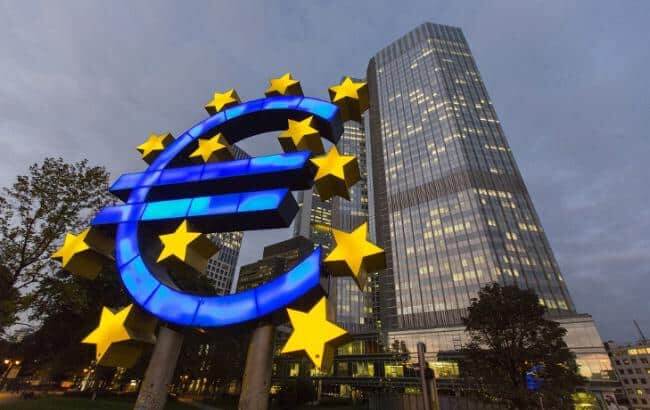
European Central Bank’s Surprise Cut Worries, Euro Steadies
On Tuesday, the euro traded close to session lows. Due to expectations that the European Central Bank will cut rates in September grew.
ECB President Mario Draghi, who will soon pass the mantle to IMF Director Christine Lagarde, might signal the cutting of rates during a policy meeting this week, investors surmised.
As traders awaited the ECB’s policy meeting and Draghi’s statements at a press conference on Thursday, the euro was neutral at $1.1208.
If the central bank imposes a monetary easing in September, inflation expectations will stay on track.
The financial markets are pricing in a 40% probability for a rate cut of 10 basis points at the European Central Bank meeting. Notably, debt markets have coursed to higher planes since ECB Head Draghi raised the notion last month.
However, a majority of analysts anticipate the central bank to cease any action to observe the extent of a cut prediction by the Federal Reserve next week. This will also give the ECB a period long enough to see if economic data would recover.
Muted inflation expectations leave the various markets watching closely to see when the central bank would impose aggressive easing. Investors will also observe if the ECB would raise limits on bond purchases.
Despite this, Draghi is known to have made surprising decisions before. He said that action would be necessary “in the absence of improvement” in the inflation numbers on June 18. This was dissimilar from the Governing Council’s meeting two weeks prior. Back then he said the action is needed in the event of “adverse contingencies”.
Draghi, at his first meeting on November 2011, reversed rate hikes. That prolonged any quantitative easing than expected.
According to one analyst, there might be “substantial measures in the ECB’S pipeline to maximize its effect by surprising the market.”
Sterling Plummets as Boris Johnson Leans Towards No-Deal Brexit
Over in the U.K., the pound plunged 3.5% to $1.2477 as investors’ anxiety on the possibility of a “hard Brexit” triggered by next PM Boris Johnson became rampant. Many perceive that a no-deal Brexit is significantly menacing towards the British economy.
The pound lingered within a conspicuous distance to $1.2382, its 27-month low, which the currency hit last week.
Analysts also inferred that in addition to the uncertain lengths that the European Central Bank, along with other major central banks, would go to in easing monetary policies. The speculation over a no-deal Brexit’s likelihood is likely to dictate the mood for the currency markets in the following weeks.
According to Takuya Kanda, general manager of a research institute, there is an increase in the prospect of a “hard Brexit” as Johnson appears to be set in becoming the new prime minister.
“In the short-term, further declines in the pound could be limited because positions are already very short. In the medium-term, sentiment for sterling will remain soft,” Kanda added.
The Conservative Party will announce the outcome of the leadership election on Tuesday. Johnson is the first in the nominative run, and a majority anticipates that he will become the next prime minister on Wednesday.
The market speculates that Johnson will pull Britain out of the EU on October 31. Also, that he will refuse to come up with any agreement to avoid the event.




